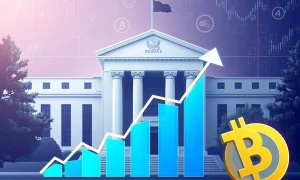The cryptocurrency landscape is undergoing a dramatic transformation as decentralized exchanges achieve an unprecedented milestone, recording $171.26 billion in weekly trading volume. This represents a massive 21% increase within just seven days, signaling a fundamental shift in how traders interact with digital assets.
Decentralized Exchanges Revolutionize Crypto Trading
Decentralized exchanges are fundamentally changing how investors trade digital assets. According to Phoenix Group data, these platforms are attracting unprecedented trader interest while reducing reliance on traditional centralized exchanges. The DEX/CEX ratio currently stands at 17.56%, demonstrating significant market penetration despite centralized platforms maintaining overall volume dominance.
Uniswap Regains Market Leadership
Uniswap has spectacularly reclaimed its position as the dominant decentralized exchange. The platform generated $23.46 billion in weekly volume with $4.26 billion in total value locked. After briefly yielding leadership to PancakeSwap during June-July, Uniswap’s return to the top highlights several key advantages:
- Intuitive user interface that simplifies complex trading operations
- Expanding trading pairs across multiple blockchain networks
- Strong community trust that functions as valuable exchange currency
Emerging Challengers Reshape DEX Landscape
Beyond established leaders, new decentralized exchanges are rapidly capturing market share. Meteora, operating on the Solana network, recorded $7.5 billion in weekly volume. This explosive growth was fueled by the YZY meme coin launch, creating substantial speculative activity. Meanwhile, Hyperliquid achieved $6.82 billion volume by specializing in decentralized derivatives products.
Strategic Partnerships Accelerate DEX Adoption
Aerodrome Finance demonstrates how strategic partnerships boost decentralized exchange visibility. The platform attracted $4.85 billion in weekly volume following its Coinbase integration. This synergy represents an emerging trend where DEXs collaborate with centralized entities, gradually blurring traditional industry boundaries.
Market Dynamics Favor Decentralized Solutions
While centralized exchanges processed $3.9 trillion in Q2 volumes compared to $877 billion for top DEXs, the growth trajectory favors decentralized solutions. Traders increasingly demand transparency, security, and control over their assets—qualities that decentralized exchanges inherently provide. This shifting preference suggests an irreversible market transformation rather than temporary trend.
Future Outlook for Decentralized Trading
The remarkable $171 billion weekly volume achievement positions decentralized exchanges as legitimate competitors to centralized platforms. No longer merely innovation laboratories, DEXs have evolved into attractive trading hubs capable of challenging established giants. The ongoing migration toward decentralized solutions indicates fundamental changes in how the cryptocurrency ecosystem values transparency and user control.
Frequently Asked Questions
What are decentralized exchanges?
Decentralized exchanges are cryptocurrency trading platforms that operate without central authorities, allowing users to trade directly from their wallets while maintaining control of their assets.
How do DEX volumes compare to centralized exchanges?
While DEXs reached $171 billion weekly volume, centralized exchanges still dominate overall trading volume. The DEX/CEX ratio currently stands at 17.56% of total market activity.
Why is Uniswap leading among decentralized exchanges?
Uniswap leads with $23.46 billion weekly volume due to its user-friendly interface, extensive trading pairs, and strong community trust that has developed over several years.
What advantages do DEXs offer over centralized platforms?
Decentralized exchanges provide enhanced security through self-custody, greater transparency through on-chain operations, and reduced counterparty risk since users control their assets throughout trading processes.
Are decentralized exchanges suitable for beginner traders?
While DEXs offer advanced features, many platforms now provide simplified interfaces that make decentralized trading accessible to beginners, though understanding wallet security remains essential.
How is the DEX market expected to evolve?
The market anticipates continued DEX growth as technology improves, regulatory clarity emerges, and traders increasingly prioritize asset control and transparency in their trading decisions.








